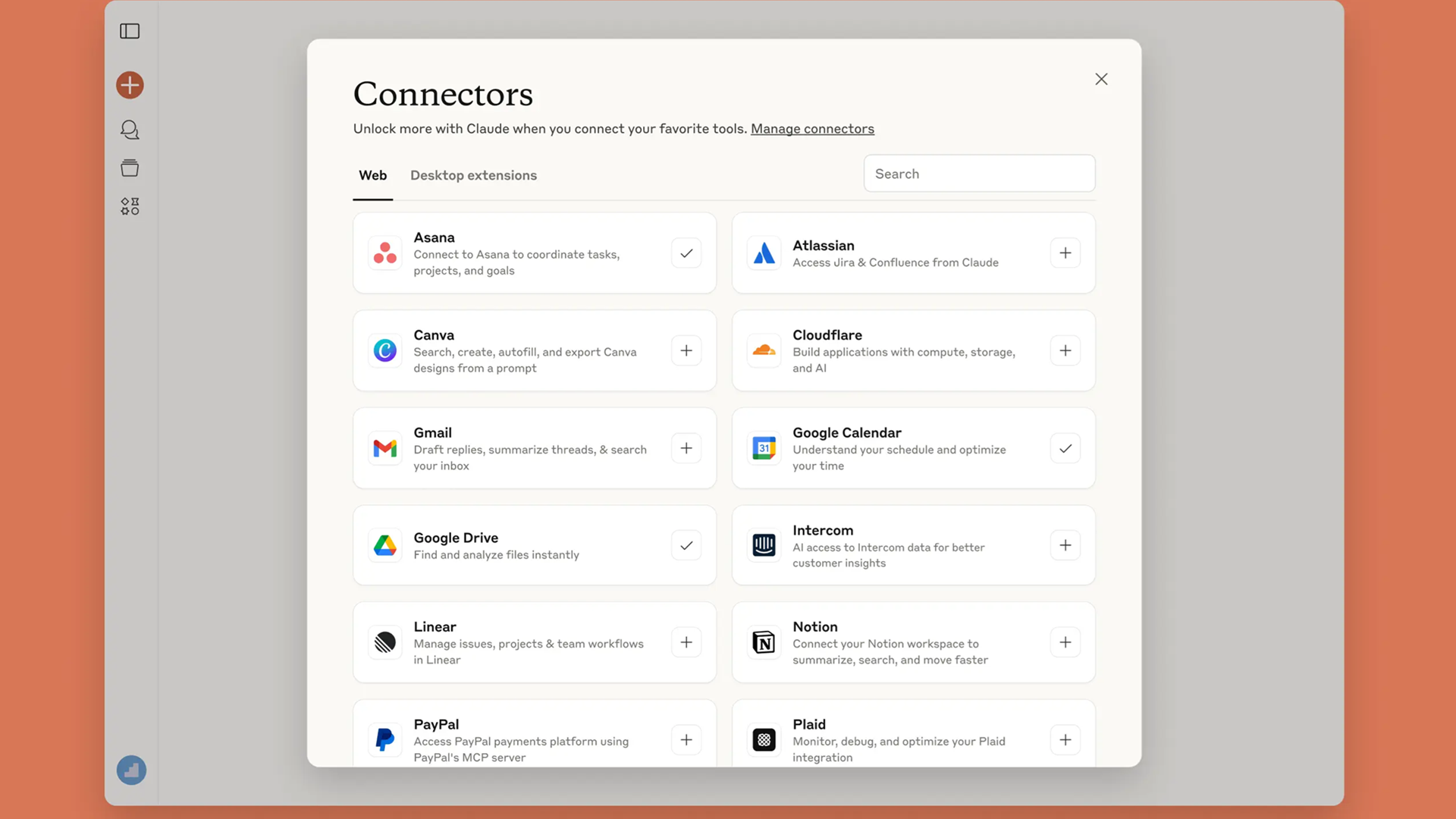You don’t have to explain everything to Claude anymore – it’s finally in your apps

- Claude can now connect to apps like Notion, Canva, and Stripe
- The AI can understand and assist with tasks using your actual work data
- Claude’s secure access reduces the need to constantly explain context to the AI
Anthropic has upgraded Claude with a major new set of tools that let the AI assistant integrate directly with several popular software tools, including Notion, Canva, Stripe, Figma, Socket, and Prisma. The new Claude tool directory means you don’t need to explain what you want to Claude every time you want to employ those tools; Claude can now look at the same information as you to help.
Until now, most AI interactions have required copying and pasting every detail from your project management tool, explaining what’s important, clarifying what each task means, and double-checking that the AI understood it. Now you can just ask it to do the task, and Claude will pull the information directly from the relevant tool to handle things.
That might not seem groundbreaking at first glance, but that context gap is where things usually fall apart when asking AI chatbots to help you. For instance, if you’re working on a product launch in Notion and have a list of things to do, you’d normally have to retype or upload all the information to Claude. Now, once you connect Notion to Claude, the AI can read your project documents directly and start putting together timelines and presentation materials that fit the product because it sees what you see.
Or imagine a small business owner using Stripe to manage payments who wants a summary of which customers paid last week and which still owe you for your services. Claude can now pull that data directly from Stripe with your permission. And with Canva, a blank social media post template can now be filled in with a design and copy from Claude based on your brief. You describe what you need in plain language, and Claude will make something usable.
Claude connected
These integrations are powered by something called the Model Context Protocol, or MCP. That basically means Claude can understand and act on the tools you use without needing a whole tutorial. You just connect an app once, and Claude gets secure, limited access to the relevant information inside it. It doesn’t read your entire inbox or download your bank history, just what’s necessary to help you with the task at hand.
You can go to Claude’s tool directory and connect whatever apps you already use. If you’re on a paid Claude plan, you’ll get access to remote app connections like Stripe and Notion. Desktop integrations, like Figma and Socket, are available through the Claude desktop app.
Other AI tools are trying something similar. Google’s Gemini shows up in Docs and Gmail. Microsoft’s Copilot is baked into Word and Excel. But Anthropic’s take is more about linking what you already do with the AI, as opposed to baking the AI into those apps directly.
Of course, this doesn’t make Claude autonomous. It can’t pay your bills or fully run your job. And while Anthropic says it’s designed everything with privacy and security in mind, some are likely to be wary, even if you can choose what Claude can access. But for most regular users, this update represents something potentially very useful in staying on top of things. If, as Anthropic claims, it will save time and mean you don’t have to redo a lot of tedious paperwork, it will likely be a very popular feature.
You might also like
Source link







